Gaia Pope death: Teen's mental health a factor, inquest concludes
- Published
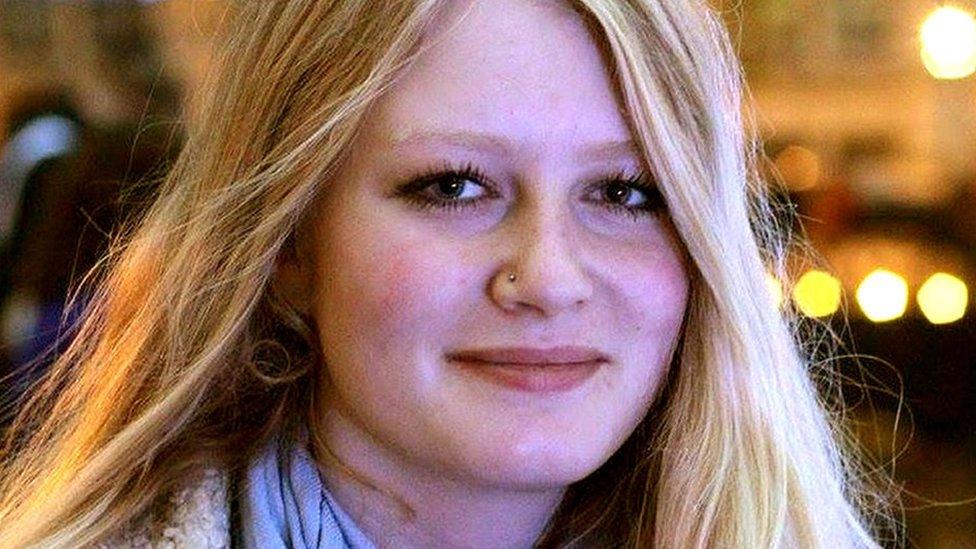
Gaia Pope's body was found 11 days after she went missing in November 2017
Teenager Gaia Pope's mental health and a lack of medical after-care probably caused or contributed to her death, an inquest jury has concluded.
Miss Pope, 19, was found dead 11 days after going missing in Swanage, Dorset, in 2017.
Her body was found in undergrowth near clifftops. A post-mortem examination revealed she died of hypothermia.
At Dorset Coroner's Court, the jury returned a unanimous narrative conclusion.
A failure to provide follow-up care after she was discharged from hospital weeks before she went missing may also have been a factor in causing her death, they concluded.
Following the hearing, Miss Pope's family's said that had she received appropriate care and been "treated with kindness and dignity" she would still be alive.
Gaia Pope's family produced a video to show to the inquest jury
Senior Dorset coroner Rachael Griffin is to write to the health secretary, Dorset HealthCare NHS Trust, Dorset Police and local councils urging them to make changes to prevent future deaths.
The inquest had heard Miss Pope was diagnosed with post-traumatic stress disorder after revealing she had been drugged and raped by a man when she was 16.
But relatives told the inquest she felt police did not believe her when she reported it and that pursuing any complaint would have been traumatic.
She had been treated in hospital in February and March 2017, where she was sexually harassed by a patient, after being sectioned following a seizure and developing psychosis.
She was further assessed at Poole Hospital in October that year but discharged and sent home without any community support.
On the day she disappeared Miss Pope was feeling anxious after being told of her alleged rapist's release from prison for other sex offences.
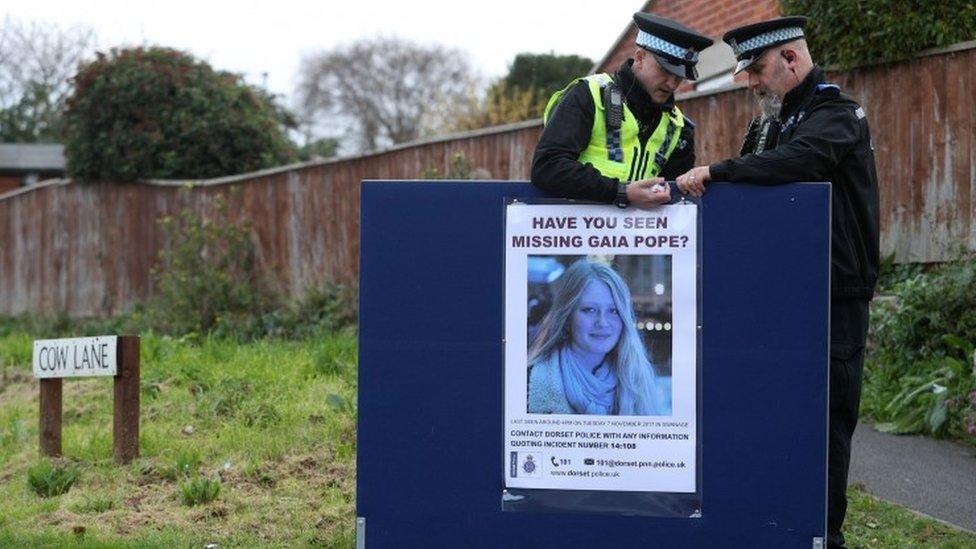
Police searches were criticised by Miss Pope's family
She died at some point between 15:59 GMT on 7 November 2017 and 10:00 on 8 November, the court heard.
The jury concluded her death was "probably caused by her mental health and mental state on 7 November 2017".
Her mother, Kim Pope, had tried reporting her daughter missing and her aunt called Dorset Police five times in the hours after she disappeared.
She had left her aunt's home in Swanage at 15:40 on 7 November.
But a formal missing person report was not logged by police until 18:15, the jury heard.
Police failures
In a statement after the hearing, her family said: "There has been a lot of talk about the complexity of Gaia's needs but the truth is they were basic.
"She needed to be treated with kindness, respect and dignity. She needed professionals to take the time to listen to her and her family and each other.
"This is not much to ask for and if she had received it we believe she would be alive today."
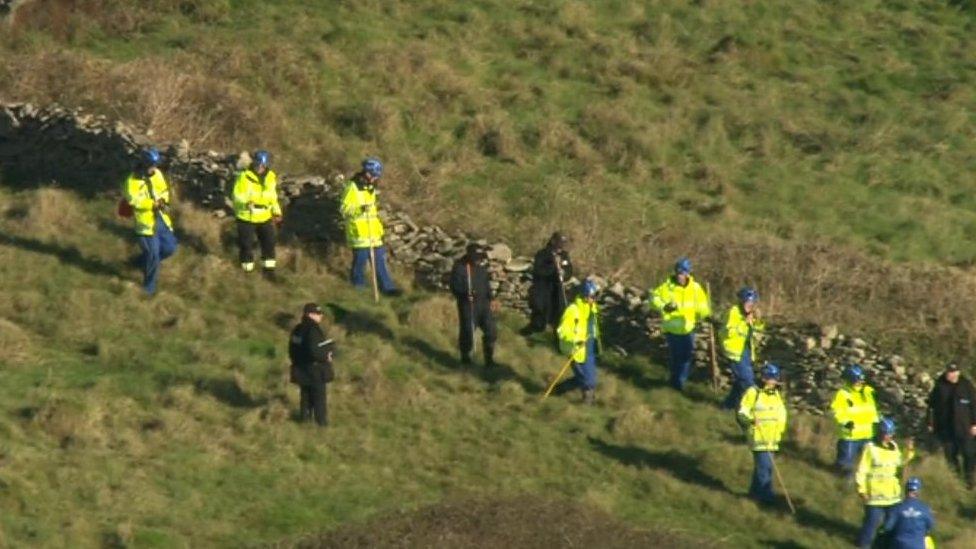
Miss Pope's disappearance prompted a major multi-agency search and rescue operation
Dorset Police's chief constable Scott Chilton accepted earlier there were several failures made in the search for Miss Pope.
But the jury found the force's handling of the case had not caused or contributed to her death.
The Independent Office for Police Conduct (IOPC) earlier found an acting sergeant had a case to answer for misconduct for his role in the search. He received a final written warning at a misconduct meeting and has since left the force.
"Significant changes" to the force's missing person policies and procedures have been made following the case, the IOPC said.
Faisil Sethi, Dorset HealthCare's executive medical director, said the trust had "publicly accepted in court that we could've done more to help support Gaia's care following her assessment in October 2017".
"We have put in place measures to address these issues and ensure our staff are fully aware of their responsibilities. No one wants anything like this to happen again," he said.

Follow BBC South on Facebook, external, Twitter, external, or Instagram, external. Send your story ideas to south.newsonline@bbc.co.uk, external.
Related topics
- Published6 July 2022
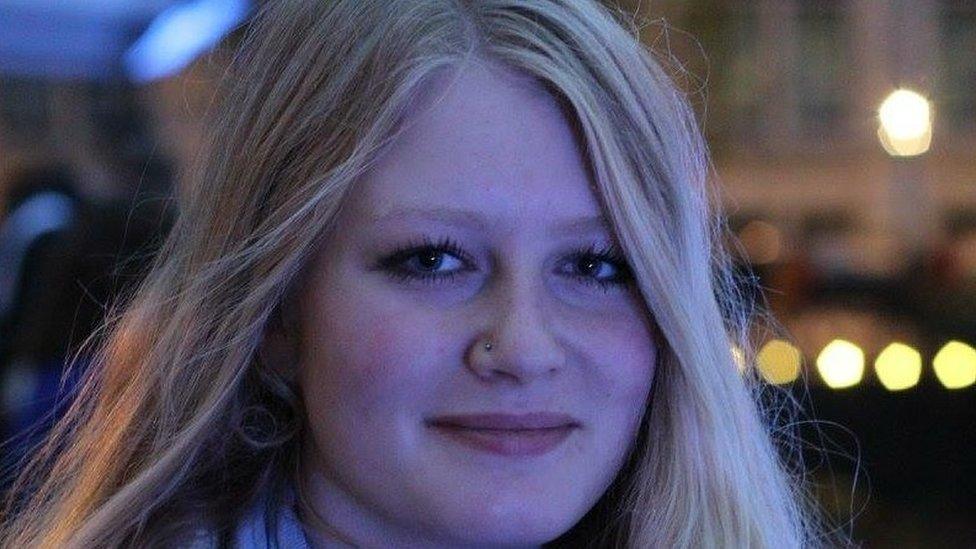
- Published20 June 2022
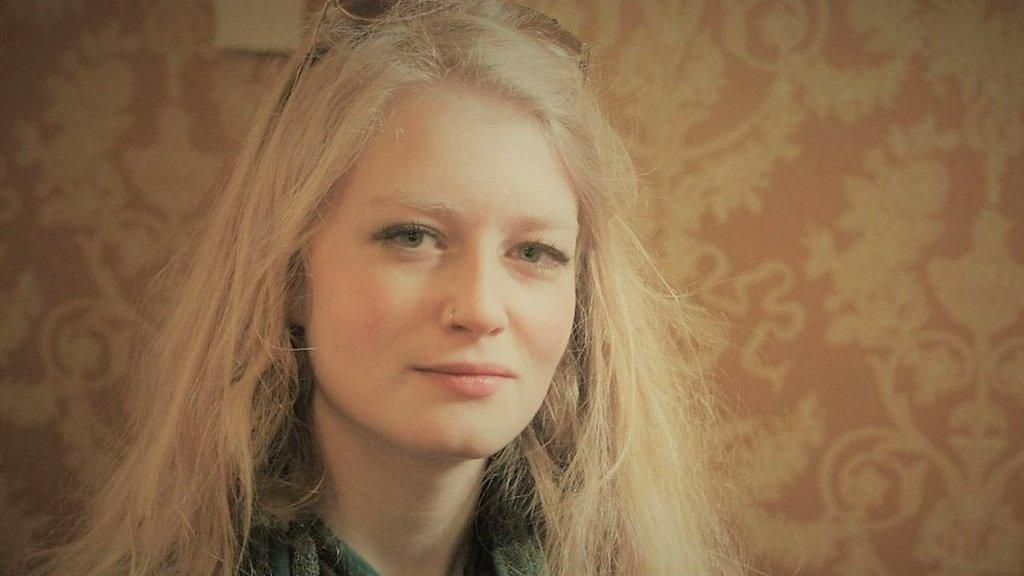
- Published10 June 2022

- Published23 May 2022

- Published16 May 2022
